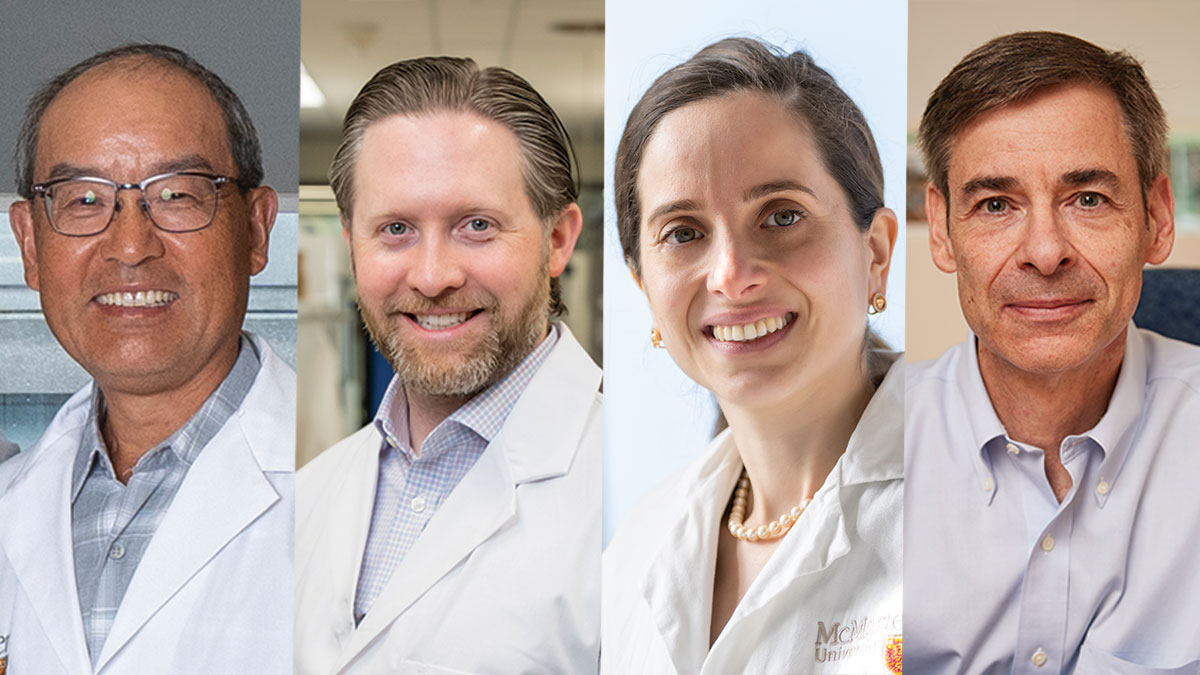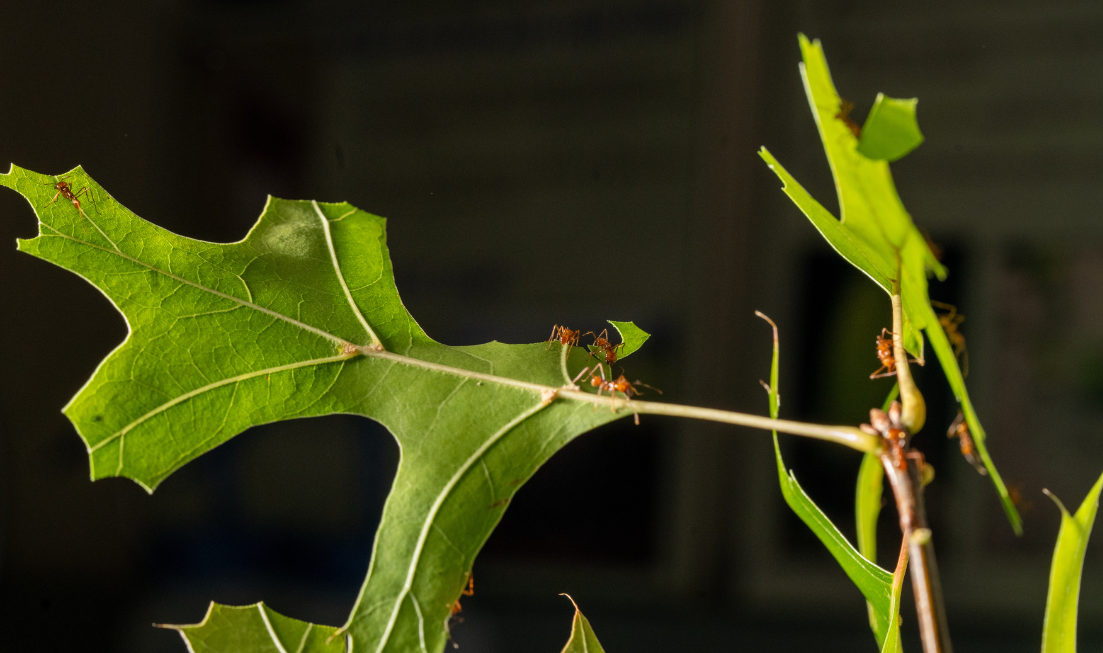Two Faculty of Health Sciences cancer researchers awarded Canada Research Chairs

Two members of McMaster University’s Faculty of Health Sciences and the Centre for Discovery in Cancer Research (CDCR) have been named Canada Research Chairs (CRCs).
Hong Han, an assistant professor with the Department of Biochemistry and Biomedical Sciences, has been awarded a Tier 2 Canada Research Chair in Cancer Systems Biology. Sheila Singh, a professor with the Department of Surgery and director of the CDCR, had her Tier 1 Canada Research Chair in Human Cancer Stem Cell Biology renewed.
There are two tiers of CRCs which recognize accomplished and emerging leaders in their respective fields. Tier 1 chairs are held for seven years and renewable once with an investment of $200,000 annually; Tier 2 chairs are held for five years and are renewable once with an investment of $100,000 annually, with an additional $20,000 annual stipend for first-term chairs.
“Congratulations to Dr. Hong Han and Dr. Sheila Singh on being awarded prestigious Canada Research Chairs. This remarkable achievement not only underscores their exceptional contributions to their respective fields, but also enhances McMaster University’s commitment to research excellence and innovation,” says Paul O’Byrne, dean and vice-president of the Faculty of Health Sciences.
 Han is a new Tier 2 Research Chair in Cancer Systems Biology. She is a principal investigator with the Centre for Discovery in Cancer Research and an assistant professor with the Department of Biochemistry and Biomedical Sciences at McMaster. The research of the Han Lab has focused on high-throughput investigation of cancer biology, specifically alternative splicing and coordinated multilayer gene regulations that impact cancer progression, therapy response, and relapse. Han’s work also aims to uncover new RNA-multimodal therapeutic targets through the study of treatment-resistant cancers, such as glioblastoma, an aggressive form of brain cancer.
Han is a new Tier 2 Research Chair in Cancer Systems Biology. She is a principal investigator with the Centre for Discovery in Cancer Research and an assistant professor with the Department of Biochemistry and Biomedical Sciences at McMaster. The research of the Han Lab has focused on high-throughput investigation of cancer biology, specifically alternative splicing and coordinated multilayer gene regulations that impact cancer progression, therapy response, and relapse. Han’s work also aims to uncover new RNA-multimodal therapeutic targets through the study of treatment-resistant cancers, such as glioblastoma, an aggressive form of brain cancer.
“I am honoured to be recognized as a Canada Research Chair. It is a privilege to work with an incredibly talented team and be part of the very supportive community at McMaster. My lab works at the interface of cancer biology, multilayer gene regulation, and innovative high-throughput technologies. Together with colleagues and leaders from related fields, we look forward to developing systems biology and multi-omics platforms that broadly benefit biomedical research and aid in discovering new biomarkers and therapeutics,” Han says.
 Singh is director of the Centre for Discovery in Cancer Research and in addition to her role as a professor of surgery, she is an associate member with the Department of Biochemistry and Biomedical Sciences. Singh saw her Tier 1 Canada Research Chair in Human Cancer Stem Cell Biology renewed.
Singh is director of the Centre for Discovery in Cancer Research and in addition to her role as a professor of surgery, she is an associate member with the Department of Biochemistry and Biomedical Sciences. Singh saw her Tier 1 Canada Research Chair in Human Cancer Stem Cell Biology renewed.
Singh’s research is groundbreaking in cancer stem cell biology. She identified brain tumor-initiating cells, which are key to the development and spread of brain tumors like glioblastomas and medulloblastomas.
“In addition to running my own basic and translational brain cancer research program and advancing many of our discoveries into the development of new therapies for patients with glioblastoma, medulloblastoma and brain metastases, I want to work with other leaders in cancer research and cancer care across Hamilton to contribute to developing a comprehensive city-wide cancer vision, wherein we translate our basic discoveries into new therapies that can be advanced through clinical trials and ultimately benefit patients in the greater Hamilton region and beyond.”
Dept. Biochem, Dept. Surgery, ResearchRelated News
News Listing

McMaster researchers get federal funding to study emerging bird flu threat
Dept. Biochem, Research
15 hours ago

Brighter World ➚
Analysis: Why can’t we die at home? Expanding home care could reduce the financial and environmental cost of dying in hospital
Research
19 hours ago

Brighter World ➚
The ‘ant’ in antibiotic discovery: How insects could be the key to fighting superbugs
Dept. Biochem, Feature
19 hours ago
